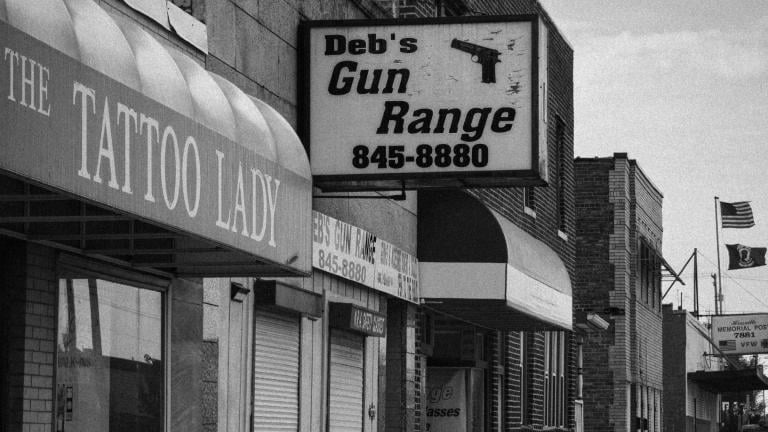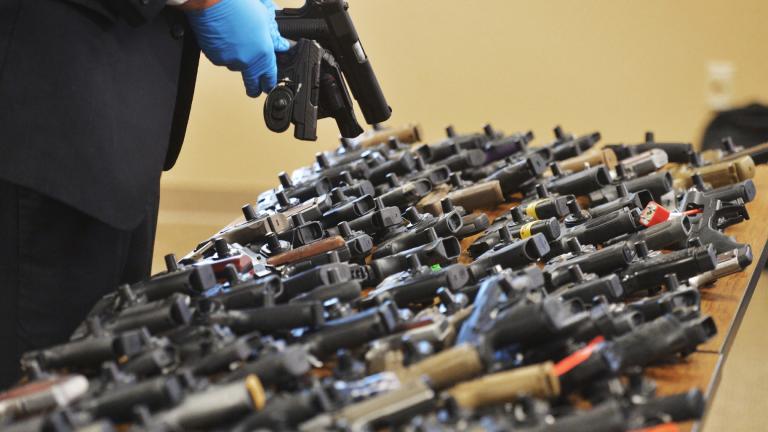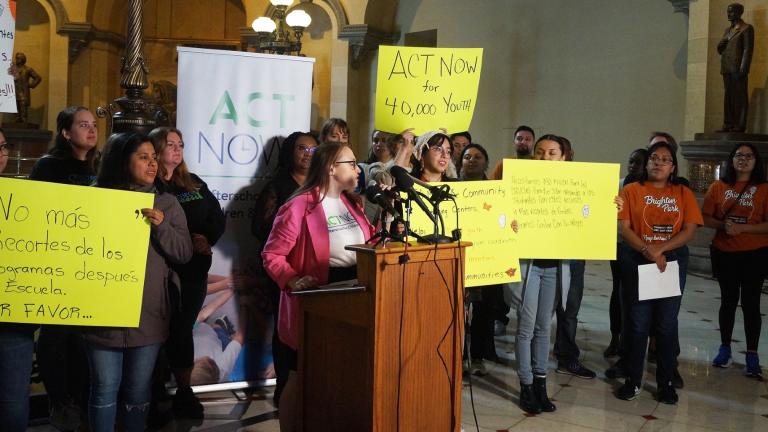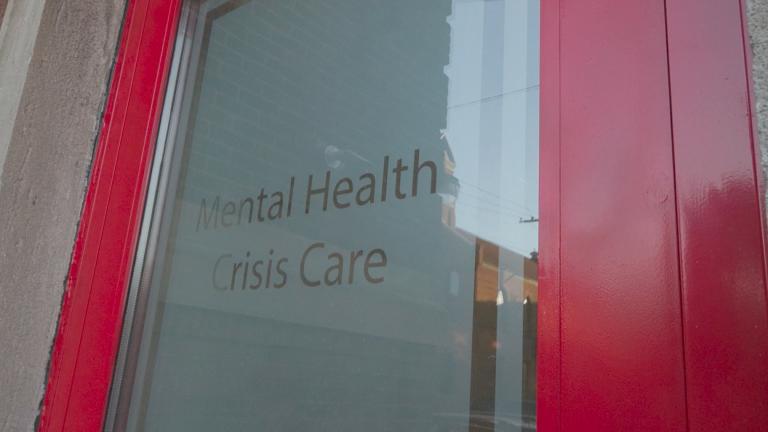Five years ago, Chicago police Officer Derrick Jones Jr. went from responding to calls on the job to becoming a victim of gun violence himself.
Now, for the first time publicly, he’s sharing his story about life as a survivor.
“Just keep going no matter what,” Jones told WTTW News. “Be your self-motivator, your self-inspiration, your own muse. … You can’t be stuck in the past. Life continues to move forward, so should you.”
For a time after the shooting, Jones depended on a wheelchair to get around. Now he moves strategically, using techniques from a therapist.
“I just take my time,” said Jones, 30, as he walked up a flight of stairs at his family’s home. “I try to avoid swinging my leg outward and just try to be as strategic as possible walking up the stairs. No rush, and I’ll do that several times.”
Nearly five years ago, Jones was shot in the head.
“I was shot at one time,” Jones said as he recounted the traumatic moment. “The one bullet fragment is in my brain ‘til this day, but I was shot at 22 times.”
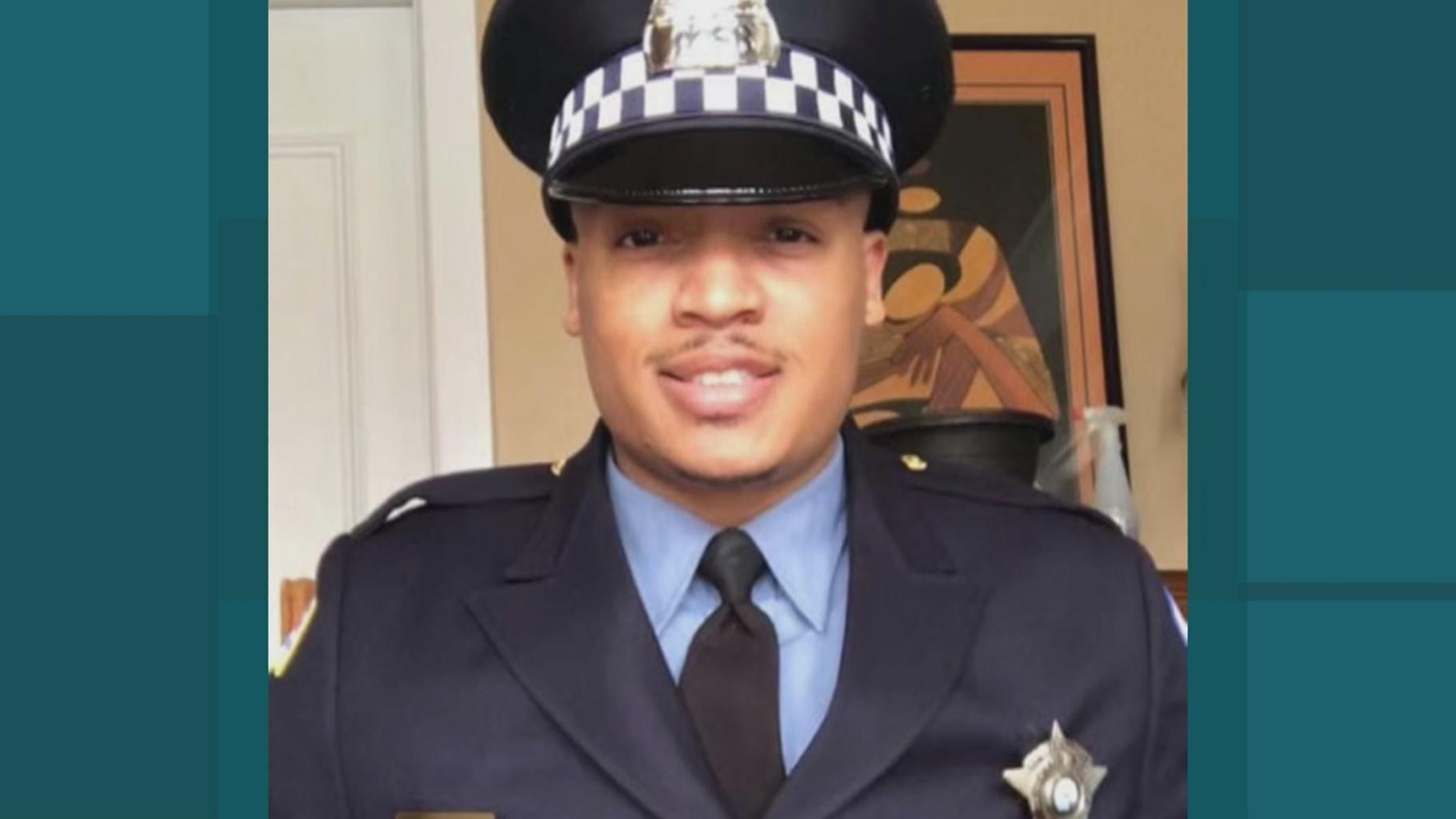 Chicago police Officer Derrick Jones Jr. was shot in the head in June 2019. (Provided)
Chicago police Officer Derrick Jones Jr. was shot in the head in June 2019. (Provided)
It was June 2019. Jones had just finished his shift at the 6th District (Gresham) police station. He had been with the department for two years.
“I was dating a girl at the time,” Jones said. “I decided to go see her like I usually do after work on certain days. That day I went to her house, and I sat in front of her house, and we just talked in my Jeep like we usually do.”
Jones said he remembers driving back from a store in Bronzeville with his then-girlfriend and noticing a vehicle following his car.
“I’m passing the police headquarters at this point, on 35th,” Jones said. “At the time I wasn’t thinking. I could’ve easily went to the police headquarters and said, ‘I think this vehicle is following me.’ But at the time, I wasn’t thinking like that. … I turned down, I want to say Michigan, and then I went to 37th, on her block, I made another turn, and that’s when everything happened.”
The next thing Jones recalls is waking up in a hospital after being in a coma.
“I got shot in the right side of my head,” Jones said. “I remember seeing a scan of my brain from my surgeon; it (the bullet fragment) was, like, millimeters from my brain stem. Had it hit my brain stem, we wouldn’t be having this conversation.”
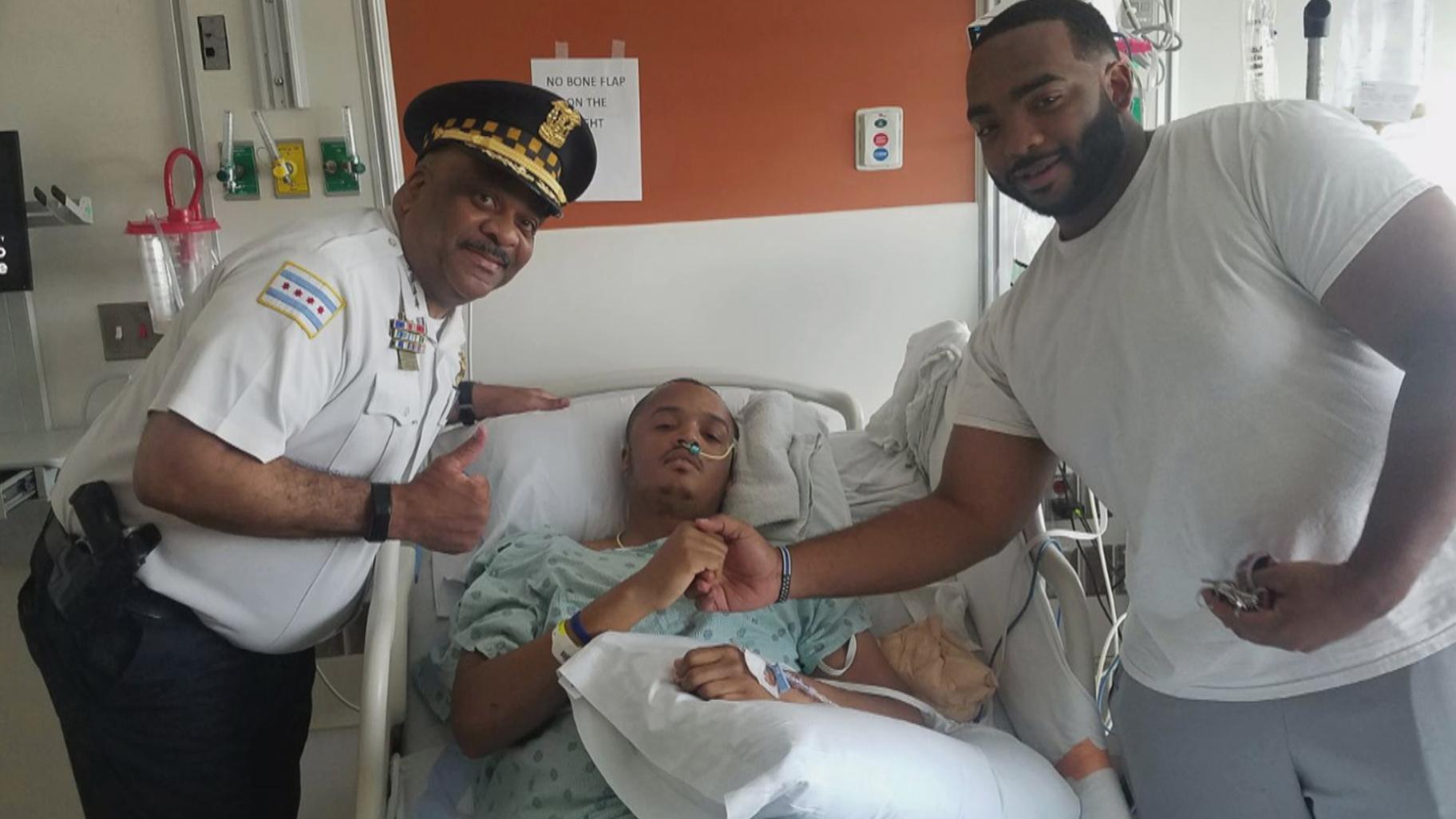 Chicago police Officer Derrick Jones Jr. was shot in the head in June 2019. (Provided)
Chicago police Officer Derrick Jones Jr. was shot in the head in June 2019. (Provided)
Despite several leads in the case, no arrests have been made.
For his father, Derrick Jones Sr., a retired Chicago police officer, it was a call no parent wants to get.
“He is a strong kid,” Jones Sr. said, noting that his son was 25 when he was shot. “For that to happen at a young age, it’s kind of like your youth has been taken from you. But he didn’t let that stop him.”
Jones Jr. credits his family and his faith with guiding him through the recovery process.
“You’re only going to get as much as you put into it,” Jones Jr. said. “That’s how I saw it. Also, my dad is the main factor. I keep mentioning my dad because he has always been there, but he was the main contributor to my recovery. … He still believed in me. I needed that.”
With time, Jones Jr. started to gain more mobility. He’s back working at the Chicago Police Department, taking on smaller tasks and pushing himself to travel.
“Watching him overcome,” Jones Sr. said, “I’m proud of him and what I want for him is to continue. He’s working on his master’s degree.”
Jones Jr. said he is ready to share his story in hopes of inspiring other survivors.
“Have I made peace? Of course,” Jones Jr. said. “I have my days. Certain days it’ll hit me, like, why me? Or a certain song or a scene in a movie will play, that’s when I reminisce in my mind. I’m not upset with the situation. I have to come at peace with it because it’ll drive me crazy. I’ve learned to forgive.”
A Safer City is supported, in part, by the Sue Ling Gin Foundation Initiative for Reducing Violence in Chicago.

